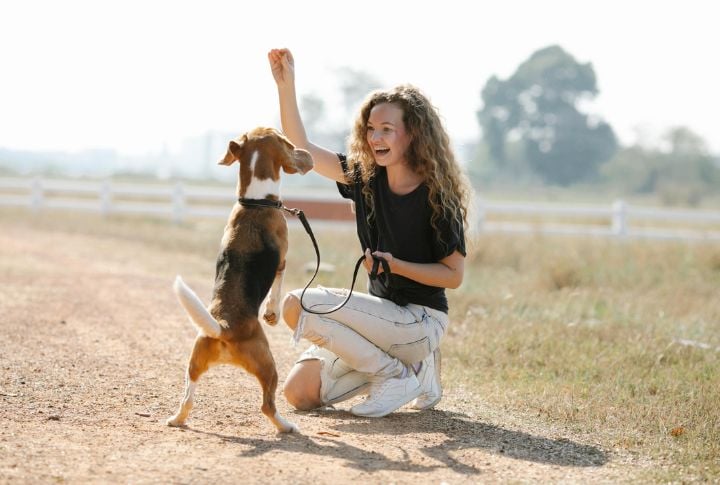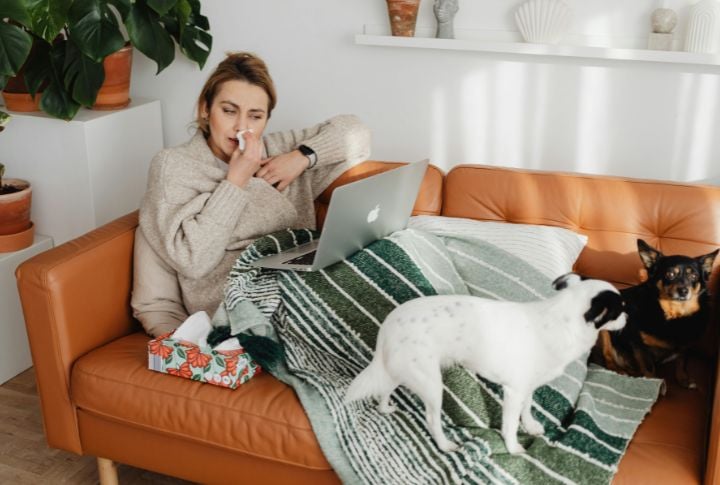15 Personality Types That Struggle With Dog Ownership

Dogs bring joy but also a responsibility that not everyone can handle. Some lifestyles and habits just don’t match up with dog ownership. If you’re questioning your readiness, you’re in the right place. Here are 15 types of people who might want to rethink bringing a dog home.
People Who Work Long Hours

If your job keeps you away most of the day, owning a dog may be challenging. Dogs can develop stress and destructive habits when left alone too much. Certain breeds require more social time, so companionship is essential for their well-being.
People Who Lack Patience

Without patience, training becomes frustrating for both the owner and the dog. Puppies test boundaries, and older dogs need regular guidance to stay on track. Reacting harshly when impatient can confuse dogs and weaken trust, making behavior problems worse.
Those Who Have Severe Allergies

Even well-groomed dogs produce common allergens such as proteins found in their saliva (Can f1 and Can f2), skin flakes (dander), and urine. These irritants easily spread through fur and cling to clothing and furniture. Due to this, sensitive individuals may find dog ownership uncomfortable or even unhealthy.
People Who Dislike Mess

Dogs bring unexpected messes. Some breeds drool excessively. Others love rolling in dirt or splashing through puddles and bringing mud inside. Even food bowls cause a disruption, with kibble scattered and water spilled. This constant clutter can overwhelm those sensitive to disorder.
Those Who Have No Access To Outdoor Space

Dogs rely on outdoor time for exercise and play, which is necessary for their well-being. When there’s no yard or easy access to walks, they often feel trapped and anxious. If you can’t provide outdoor space, getting a dog may not be the best idea.
Budget-Stretched Individuals

Dogs need more than food—vet visits, medicine, grooming, emergencies, etc., all cost an arm and a leg. Unexpected health issues can quickly add up, so if your budget is tight, it’s important to reconsider getting a dog to avoid struggling with expenses later.
Individuals Who Travel Frequently

Regular travel interrupts a dog’s sense of routine, which can lead to stress and anxiety. Changing caregivers or environments frequently makes it harder for dogs to feel comfortable. Even travel-friendly breeds may act withdrawn or stop eating when away from familiar faces.
Individuals Who Are Not Physically Active

If you rarely exercise or avoid daily activities, a dog might not be the best choice. Low-energy breeds still require walks and playtime. Without enough movement, dogs can become anxious and destructive. A pet needs your time and energy, not just affection when it’s convenient.
People Who Are Impulsive Decision-Makers

Choosing to get a dog requires careful thought and commitment. Impulsive decisions often ignore the ongoing needs dogs have, which can lead to them being rehomed. Since breeds differ in care and supervision, it’s important to consider these factors before bringing a dog home.
People Who Lack Time For Training

People who don’t have enough time for training may struggle with a well-behaved dog. Training builds trust and helps prevent problems like jumping and barking. If owners don’t provide proper guidance, these behaviors often get worse and create more stress for both the dog and the owner.
Those Who Cannot Handle Noise

Dogs bark to communicate, but for individuals sensitive to noise, this normal behavior can cause discomfort. It signals excitement, alertness, and many other emotions. If you struggle with constant sound, a pet with a quieter demeanor could be a more comfortable fit.
Individuals Without Access To Reliable Support

Sometimes, life throws curveballs, and you might need help with your dog. If you don’t have family or services to step in during emergencies or busy times, managing a dog’s care can become overwhelming. Having a support network is important.
Individuals Who Have A Fear Of Dogs

Cynophobia is a strong fear of dogs that makes bonding and attention difficult. It can develop from past trauma or cultural influence. Dogs are highly perceptive and can sense human emotions. Fearful reactions may cause dogs to respond with anxiety or avoidance, which disrupts the chance for a secure bond.
People Who Are Not Emotionally Ready

Dogs are sensitive to their owners’ emotions, regularly reacting to stress and changes in mood. They need consistent attention, such as daily interaction, to feel secure. When personal challenges make it difficult to provide this, owning a dog can feel overwhelming rather than comforting.
Individuals Who Expect Perfection

Dogs are not perfect—they can misbehave and need time to learn. Their behavior is influenced by traits such as energy levels, instincts, and temperament, which vary by breed. So, setting unrealistic expectations can lead to frustration and disappointment.





